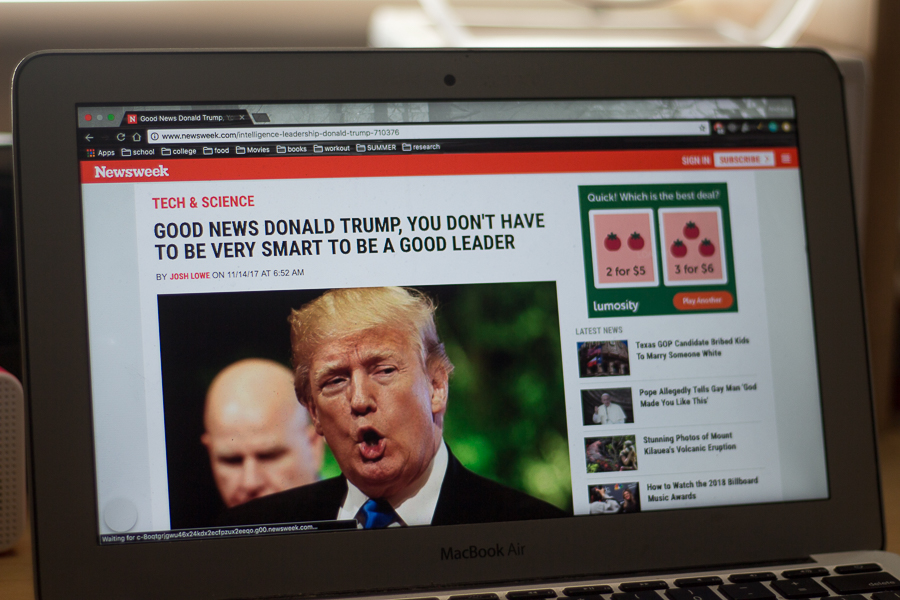
Social media users should make sure that their information comes from a reliable source
Anyone who is well-acquainted with social media has probably been exposed to neo-yellow journalism, which lures users to a highly-exaggerated post or thumbnail link. Many of us, while being suspicious of its authenticity, take the bait anyway. Despite falling for clickbait, it seems like we never really learn following our mistakes. This curiosity of ours to find out more about these provocative news headlines, stories and articles may be the reason why.
Among social media sites, Facebook is highly utilized by private websites whose profit is determined by clickbait. The main goal of these sites isn’t to sell some product or push their views onto the readers, but to get high views simply to generate ad revenue. Thus, we can deduce that sites that thrive on clickbait news make money just by spreading fake news or misleading news.
There are tons of articles on Facebook that operate through this mechanism and, although there have been recent developments in order to curb this issue, there’s still a long way to go. But, then again, can we hold Facebook accountable for this issue instead of the sites themselves? Many argue that Facebook is a private social networking site that mainly serves the function of connecting people no matter where they are, and it is in no way a news outlet.
Even though Facebook isn’t news media, the repercussions of the fake news that appears on this social network may sometimes be very serious and assist in fostering hate speech or, in some extreme cases, violence — not to mention that hate speech on social media can be seen pretty much every day.
And fake news is not only a problem in the United States. Especially in developing nations with high numbers of internet users like India and China, this issue is even more severe. In China, because there is no Facebook, fake news is prevalent on the social media site WeChat. Jian Kuang, a third-year computer science major at UC Davis, hails from Hubei, China and has been living in the United States for the past four years. Kuang said that WeChat is mainly used for political purposes and it’s much more exaggerated and sensationalized, so one could easily tell that it’s clickbait.
Sometimes, clickbait may fulfill its promise but only to some extent, or the user can never make it through the whole article due to all the advertisements and how long it is. And there’s another form of clickbait in which the only reason a user clicks on the link is to know more about the person or place on the thumbnail. For instance, the thumbnail might show a famous sportsperson who is supposedly poor now, so the reader becomes curious to know about the tragic story. But then that person, place or thing shown on the thumbnail is never addressed in the article or post. Despite not getting to know about the specific famous athlete’s story that was advertised, the article might mention other athletes and their tragic stories — thus misleading the readers while still feeding their curiosity.
However, as much as we may want to downplay clickbait’s impact on people’s minds, incomplete knowledge is far more dangerous than no knowledge at all. These fake posts have resulted in the formation of battalions of people who enter discussions on social media — which is usually a great thing — but all their points, or many of the points they make, are sadly based on the fake news spread across social media and the internet as a whole. It is always a better option to not blindly believe everything we read on social media and to instead refer to confirmed reliable sources about a topic that we don’t know much about. Knowledge is always evolving, which also means that its fake version is, too.
Written by: Kanwaljit Singh — kjssingh@ucdavis.edu
Disclaimer: The views and opinions expressed by individual columnists belong to the columnists alone and do not necessarily indicate the views and opinions held by The California Aggie.



